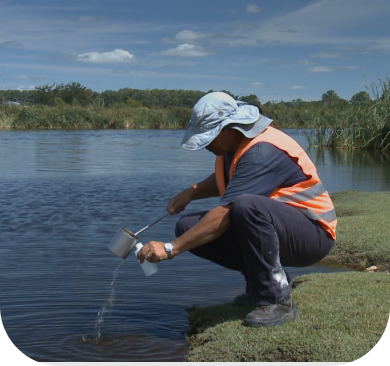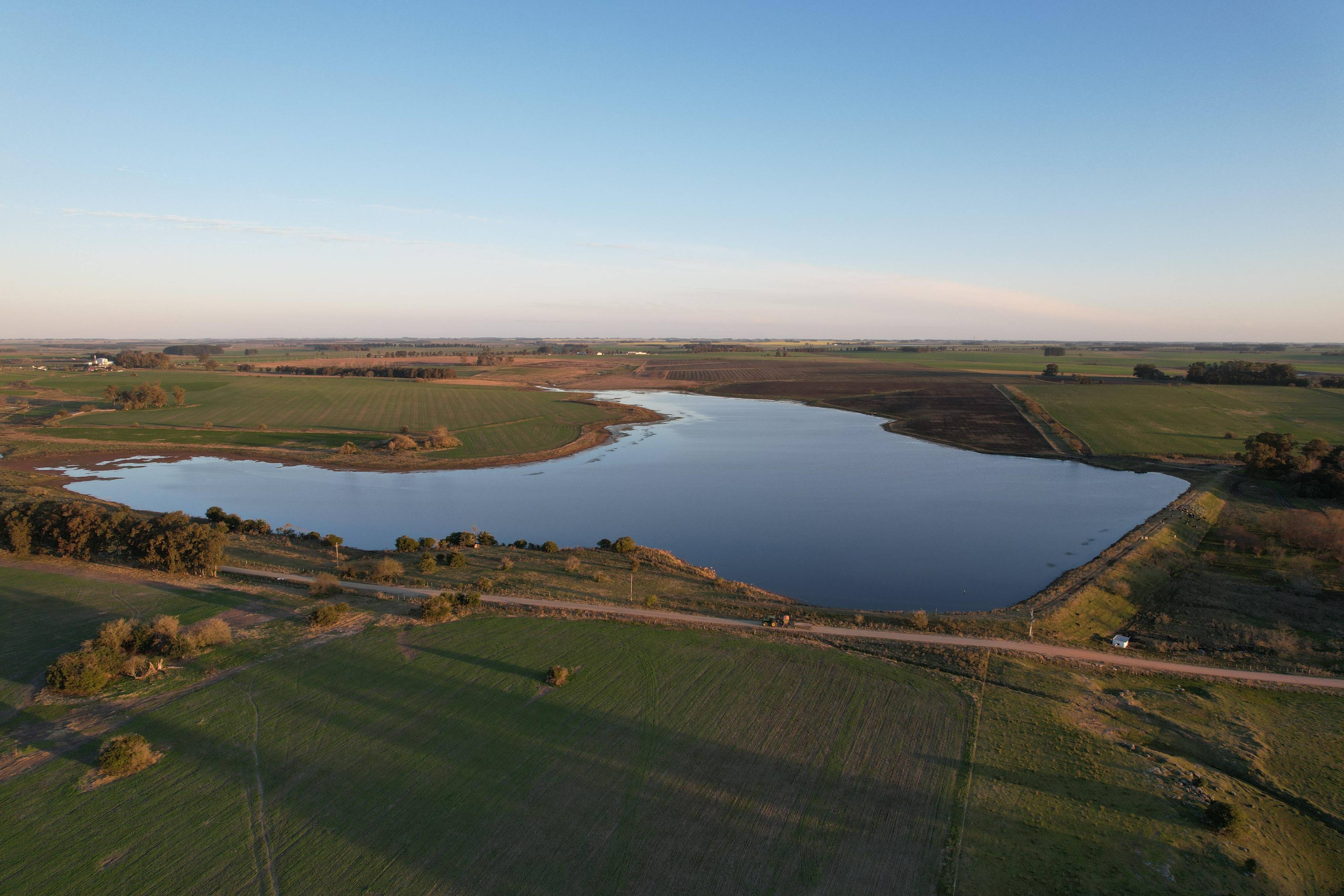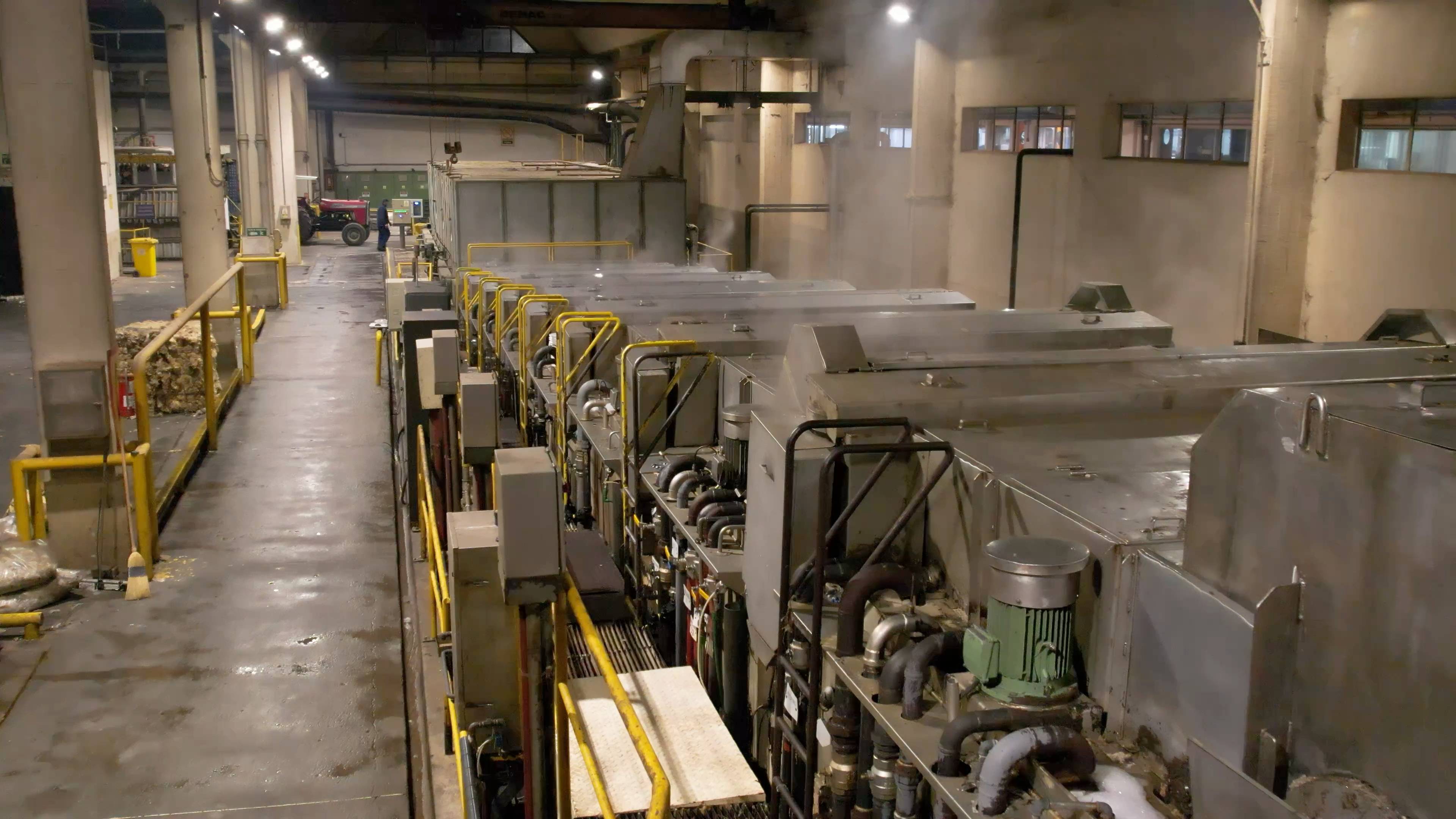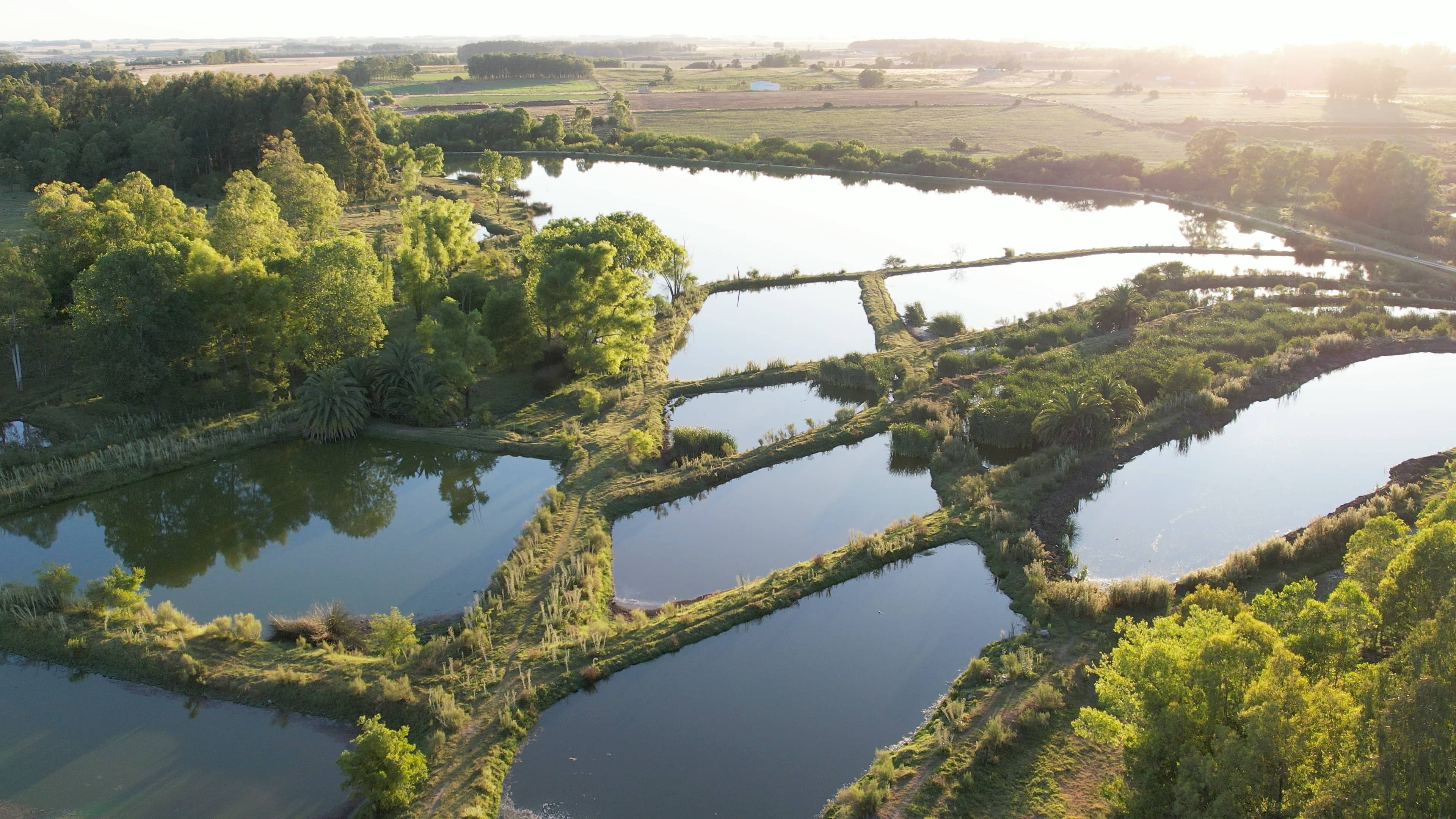

Water Management
Producing high-quality scoured wool and tops requires abundant water to clean the raw wool from animals, especially to meet the demands of rigorous markets like those served by Lanas Trinidad.
To achieve this sustainably, the company constructed a 1,000,000 cubic meter reservoir in 1997, which is filled exclusively by rainwater. This water is then transported to the industrial plant through a 7 km aqueduct, ensuring that 100% of our water supply is natural and renewable.
We do not rely on city's drinking system, groundwater, or river systems for production. Additionally, in our scouring and combing processes, we use only organic and biodegradable detergents and additives, guaranteeing a sustainable production process in harmony with the environment.


After the wool is scoured, we manage the resulting process water responsibly to mitigate our water footprint. Given its high organic content, untreated effluent could have a significant environmental impact.
In line with circular economy principles, we first recover wool grease from the effluent through centrifuges. This valuable raw material is then sold to clients for them to transform into lanolin which is then used in the pharmaceutical and cosmetics industries for developing creams and care products.
Once the wool grease is extracted, the remaining effluent undergoes anaerobic and aerobic biological treatment in 22 lagoons spread across our 140-hectare property, located 2 km from the plant. In this process, bacteria naturally break down the effluent, producing methane-rich biogas.
In 2012, we installed a lagoon biodigester to capture this biogas, with two main objectives: reducing greenhouse gas emissions by over 95% and generating renewable energy from methane. This energy, entirely natural and renewable, is produced through combustion of the biogas and partially powers the industrial plant.

After this initial stage, the effluent continues its purification in 21 aerobic facultative lagoons. At the end of the process, the treated water meets all regulatory standards for discharge into open watercourses. However, instead of discharging it, we use the nutrient-rich effluent, high in nitrogen and phosphorus, for agronomic irrigation of our own trees. This approach shortens their growth cycle, after which they are harvested to fuel the plant's boiler, generating our biomass from a renewable source.
The final treated effluent is also used to irrigate forage crops that support our sheep and cattle, closing the water cycle without discharging production wastewater into open water sources. This holistic approach ensures that 100% of the water used is recycled. Lanas Trinidad does not "consume" water; rather, we collect rainwater, utilize it, biologically purify it, and return it to the environment.
Wool Dust as Biofertilizer
Wool combing generates a solid byproduct known as wool dust, composed of small fiber fragments, dust, and water. This residue is an excellent bio-fertilizer rich in nitrogen, offering a natural alternative to synthetic nitrogen fertilizers like urea. Wool dust, being biodegradable has a longer-lasting effect, enriching the soil for 3-4 years, improving its structure, and promoting root development.
Furthermore, wool dust contributes to increased soil carbon stock. The slow breakdown of wool's keratin reduces atmospheric CO2, positively impacting global warming mitigation. This natural, durable fertilizer supports soil health while contributing to sustainable carbon management.
